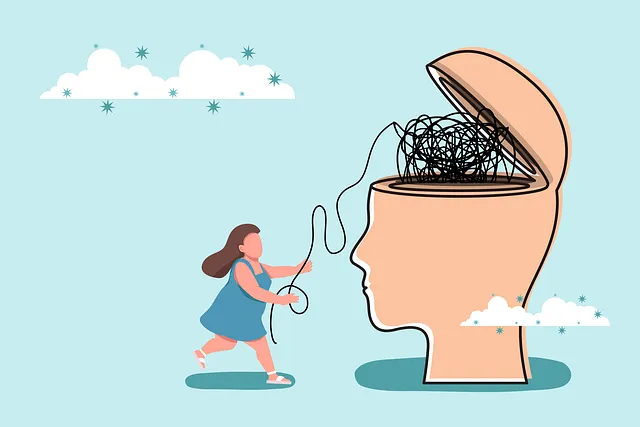Marketing mental wellness apps requires understanding diverse audience segments, including those seeking services through the Lafayette Kaiser Permanente mental health appointment number. By recognizing users' emotional needs, marketers can personalize campaigns effectively. Targeted strategies focus on specific issues like stress management or self-esteem improvement, ensuring app features resonate with individual landscapes. User research and feedback from individuals interested in Lafayette Kaiser Permanente appointments are crucial for developing successful marketing strategies, fostering trust, and driving engagement through aligned app updates and promotions.
In today’s digital age, mental wellness apps play a crucial role in improving access to psychological services. To thrive in this competitive landscape, developers must craft robust marketing strategies that resonate with diverse users seeking mental health support. This article guides you through developing an effective strategy, from understanding your target audience—including identifying unique needs and demographics like those served by Lafayette Kaiser Permanente mental health appointment services—to leveraging digital channels and measuring success through key performance indicators (KPIs).
- Understanding Target Audience for Effective Marketing
- – Define target demographic for mental health apps
- – Incorporate user research and feedback in marketing strategy
Understanding Target Audience for Effective Marketing

Marketing a mental wellness app requires a deep understanding of its target audience. For instance, considering the demographic and psychographic factors of users seeking mental health services through platforms like Lafayette Kaiser Permanente’s mental health appointment number, can significantly tailor marketing strategies. Individuals often turn to such apps for various reasons, including stress management, anxiety relief, or support during emotional healing processes.
By segmenting the audience, marketers can create personalized campaigns that resonate with specific needs. For example, promoting self-awareness exercises to those seeking mindfulness tools, or focusing on self-esteem improvement programs for users aiming to boost their confidence. Effective marketing in this context involves recognizing the diverse emotional landscapes of potential users and offering solutions through the app’s features and content, ensuring a relevant and engaging experience.
– Define target demographic for mental health apps

Mental wellness apps cater to a diverse range of users but often target individuals aged 18-45, aligning with peak mental health concerns and digital engagement. This demographic includes young adults navigating career pressures, students dealing with academic stressors, and midlife individuals facing life transitions or chronic conditions. For instance, the Lafayette Kaiser Permanente mental health appointment number reflects this trend, as younger patients increasingly prefer scheduling therapy sessions via phone or online platforms.
When developing marketing strategies, it’s crucial to consider not only this broad age group but also specific segments within it. Certain populations may have unique mental health challenges; for example, healthcare providers can benefit from apps offering Risk Assessment for Mental Health Professionals or Conflict Resolution Techniques to enhance their practice. Additionally, promoting Healthcare Provider Cultural Competency Training through digital channels ensures that app users and developers alike stay informed about best practices in diverse care settings.
– Incorporate user research and feedback in marketing strategy

Incorporating user research and feedback is a cornerstone of crafting an effective marketing strategy for mental wellness apps. By actively listening to users like those seeking Lafayette Kaiser Permanente mental health appointment numbers, app developers can gain valuable insights into their target audience’s needs, preferences, and pain points. This data-driven approach allows for the creation of targeted campaigns that resonate with potential users, fostering trust and engagement.
For instance, understanding user feedback on features such as Trauma Support Services, Compassion Cultivation Practices, and Mental Wellness Journaling Exercise Guidance can help guide future updates and promotions. Incorporating these popular elements into marketing collateral ensures that efforts align with users’ expectations, enhancing the app’s appeal and encouraging positive word-of-mouth referrals.
In developing a marketing strategy for mental wellness apps, understanding your target audience is paramount. By defining the demographic most likely to benefit from these services, as highlighted by Lafayette Kaiser Permanente’s approach to mental health appointments, you can tailor your messaging effectively. Incorporating user research and feedback ensures that your marketing resonates with real needs, fostering trust and adoption. This strategic focus not only enhances your app’s visibility but also contributes to improved mental health outcomes in your target market.






